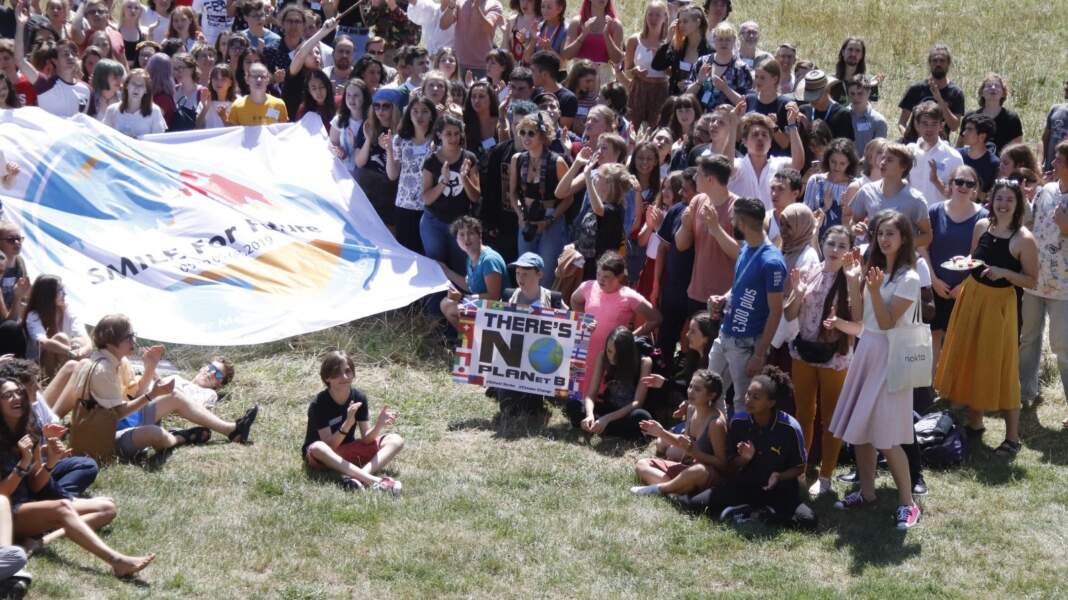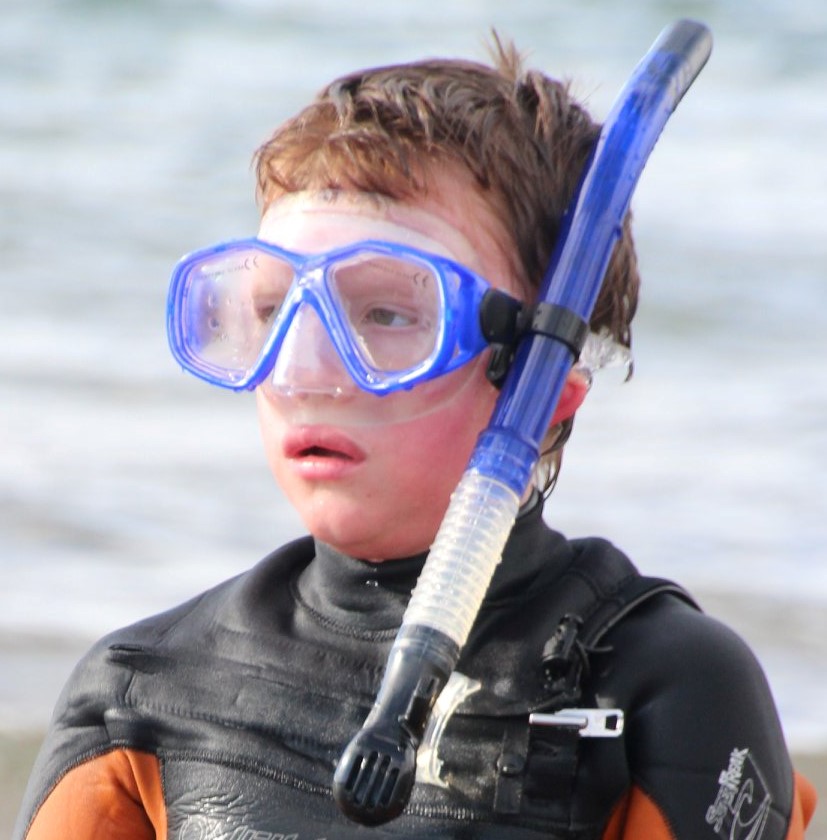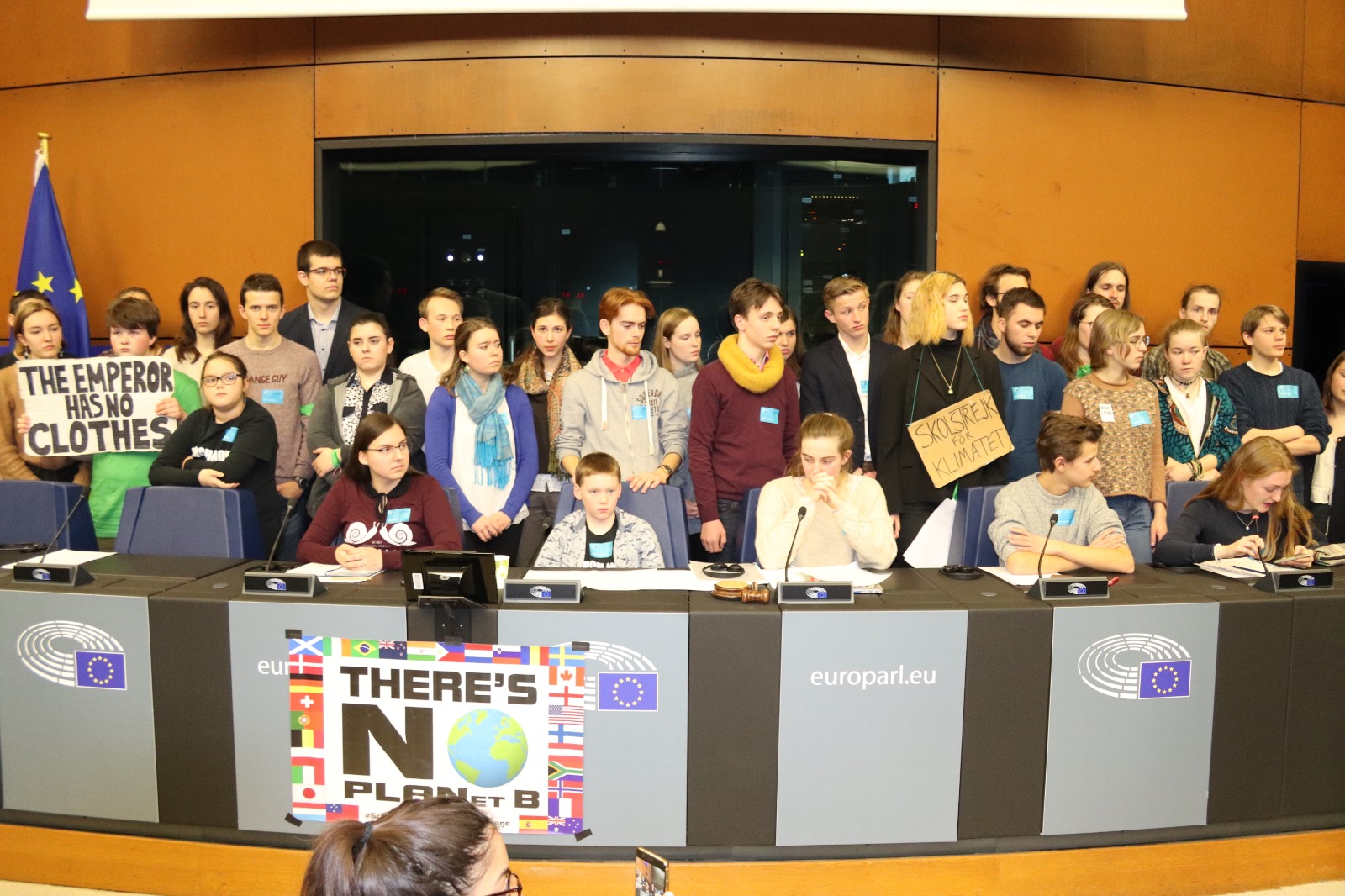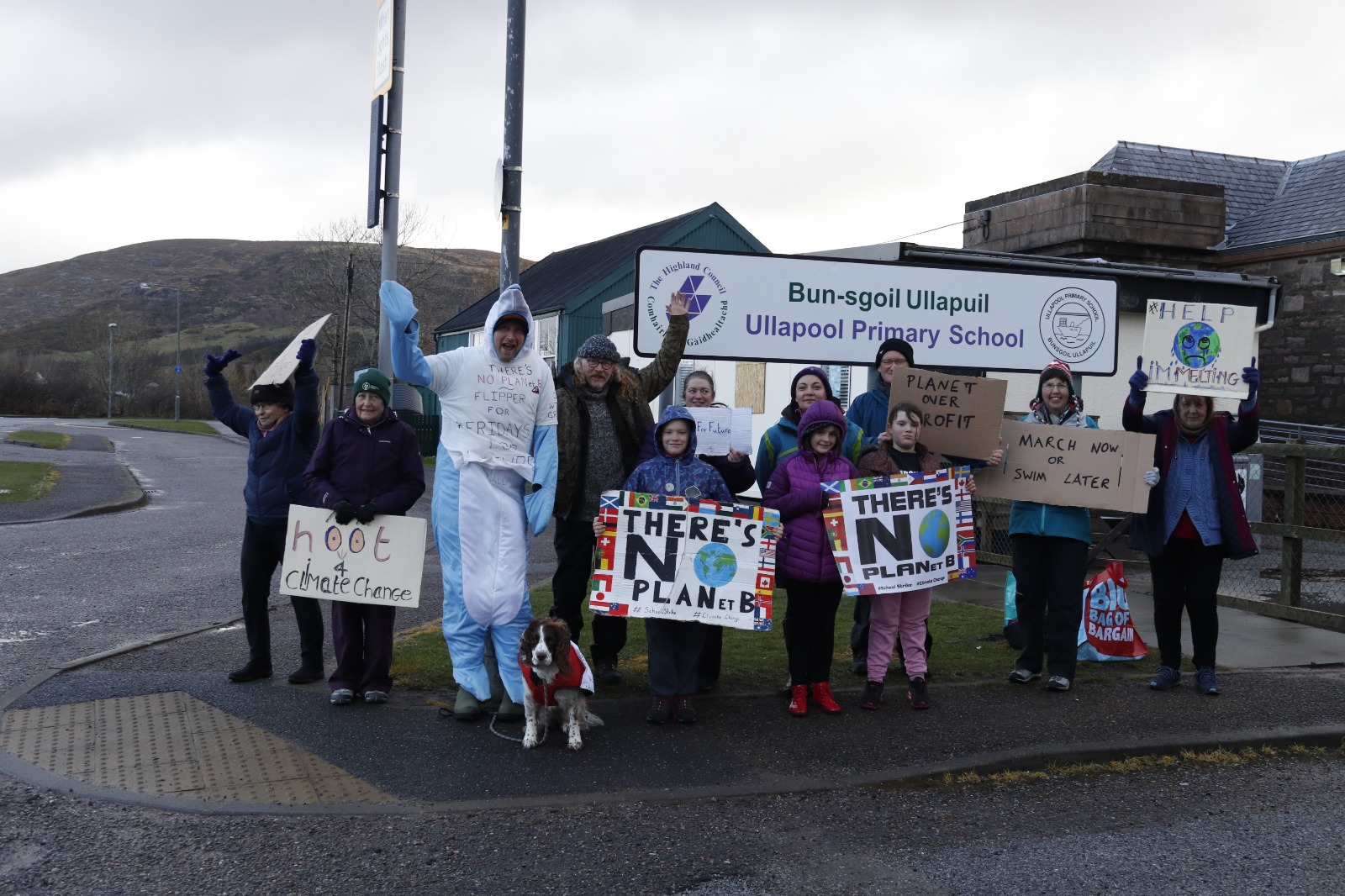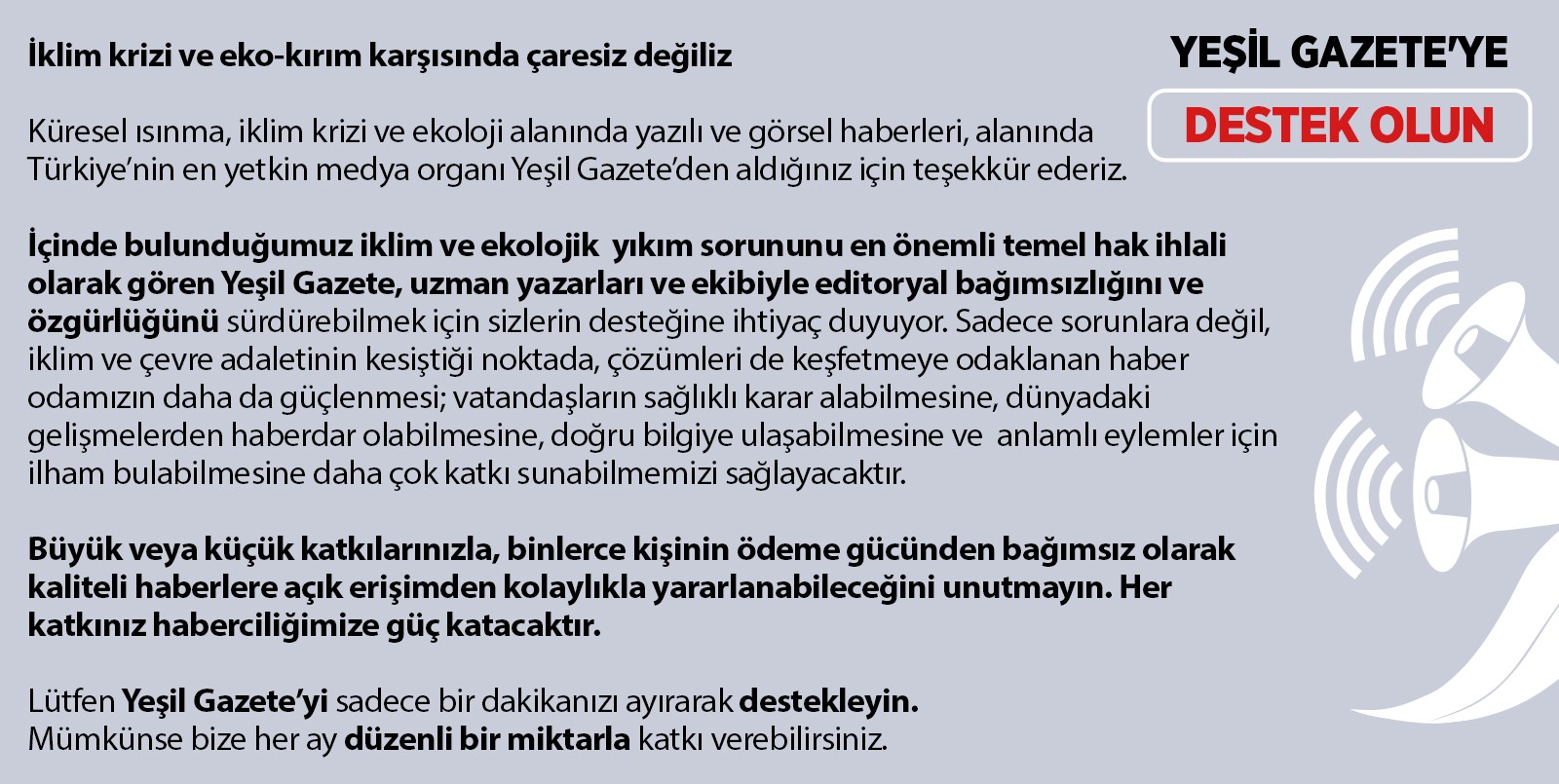Interview: Atlas Sarrafoğlu
Finlay Pringle is a 12-year old student, marine conservationist, climate change activist, Sea Shepherd and Ullapool Shark Ambassador from Ullapool, Scotland. He became the first Briton to go on a youth climate strike back in 2018 and he still continues his weekly strikes. Finlay is best known for his shark campaigns. Sharks are his all-time favourite marine creatures, most people call him Fin because of his shark enthusiasm.
My generation hasn’t failed as we’ve only just arrived on the scene! We can turn this around yet.
‘My love of marine life made me see the major problems’
Atlas: How did you start climate striking? What is your inspiration?
Finlay: I started climate striking on the 14 December 2018. I was inspired by what other European school kids like Greta were doing. I live next to the sea so my main inspiration is all around me. My love of marine life and spending time in the water connecting with it made me see what the major problems facing our oceans and the planet.
Jacques Cousteau famously said ‘We only protect what we love’. Well, I love the oceans and all the creatures that live there and I will fight to protect them from overexploitation, plastic pollution and climate change.
We are by no means perfect. But the world doesn’t need 1% of the population doing everything perfectly, we need 99% of the world trying their hardest to reduce their consumption of resources as much as possible.
How is climate striking effecting your life? What kind of changes happened in your life since you started your strikes?
Finlay: Since starting climate strikes the whole family has made lots of personal changes to our lifestyle. We all walk to school and work. We have removed all plastics from our bathroom, even the toothbrushes. We try to buy only local products and choose products with as little plastic packaging as possible. We avoid palm oil wherever possible.
Our energy provider sources their electric from renewable energy companies. We now eat an almost exclusively vegetarian diet and recently bought a hybrid electric car. We recycle as much as possible and try to buy second-hand clothes where possible. We are by no means perfect. But the world doesn’t need 1% of the population doing everything perfectly, we need 99% of the world trying their hardest to reduce their consumption of resources as much as possible.
You are a shark ambassador for Sea Shepherd Conservation Society now, but you had been removed from your junior shark ambassador role by the American charity ‘Sharks4Kids’ for speaking out against Bear Grylls’. Can you tell us what was wrong to you with the whole situation?
Well, effectively Bear Grylls lent his name to a ‘high thrills’ adventure park where one of the entertainment activities was diving with sharks. The sharks were kept in a small tank into which members of the public are allowed to dive. Most sharks don’t do well in aquariums, finding it too stressful and so need replacing regularly from the wild as their lifespan is shortened and they do not breed.
The dive experience was advertised as being deadly and dangerous, even though more people are killed by lightning every year. I was very angry about this commercial exploitation of sharks and also the fact that it was perpetuating the myth about sharks and sending out completely the wrong message. I went on social media to complain about it, telling Bear Grylls that as Chief Scout he should be setting a better example to children about protecting the environment.
This led to me being removed from my ambassador role by Sharks4Kids as they were worried about the legal issues. When Captain Paul Watson heard what had happened, he made me his shark ambassador instead saying I had done the right thing to stand up and voice my opinion about the situation.
They need our protection; we should be ‘afraid for sharks not afraid of them’.
Why are you specialised on sharks? What is happening with the marine environment during the climate crisis?
I am focused on sharks because they are not the Hollywood monsters film makers make them out to be, this gives sharks a very negative image and makes people fear them. They have been around for 400 million years and as apex predators have helped to shape life in or oceans, but due to humans, through over fishing and climate change, they could easily become extinct in my lifetime. They need our protection; we should be ‘afraid for sharks not afraid of them’.
‘Everyday 8000 tonnes of plastic enters our oceans’
Our oceans are facing terrible times, from over exploitation, plastic pollution, increasing ocean temperatures and acidification, our oceans are also losing the ability to produce oxygen and store carbon dioxide. Every day 8000 tonnes of plastic enters our oceans; this cannot continue and we must reduce our reliance on single use plastic. Micro plastics are already entering the food chain with as yet unknown health implications.
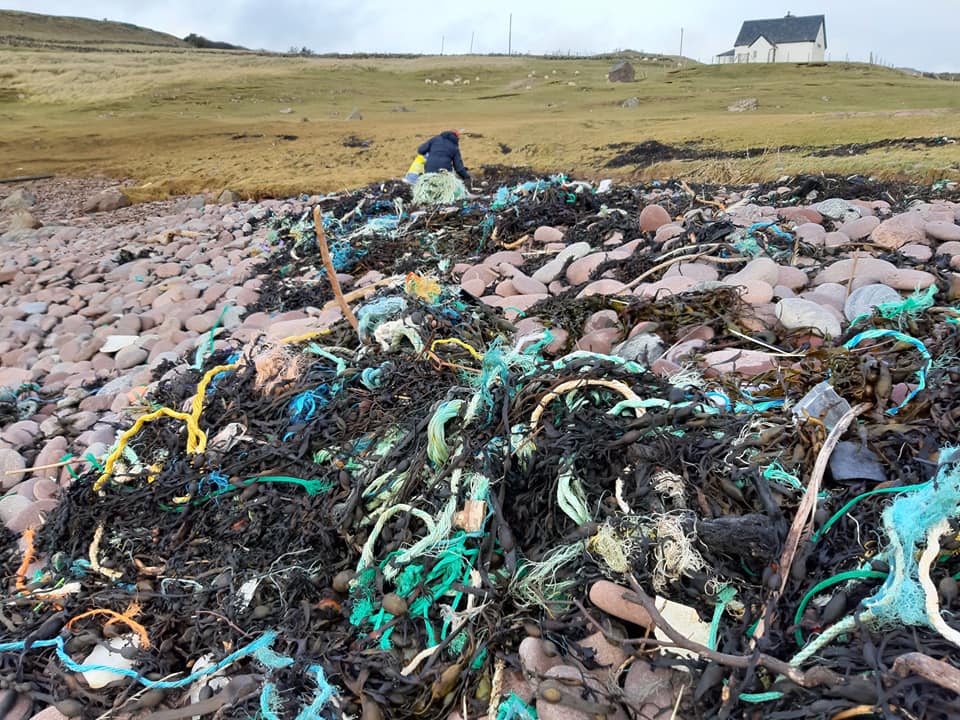
‘If the oceans die, we die’
Last year we lost over 30% of the Great Barrier Reef due to ocean warming. Think about that for a moment, the largest, most complex, diverse organism on the planet is dying due to human activity. Our oceans cover of 70% of the planet and currently produce over 50% of the oxygen we breathe and absorb over 50% of man-made carbon dioxide.
They are the true lungs of the planet, more so than the rainforests. Our oceans have absorbed almost all the current planetary temperature rise created by human activity, but it is clear we are reaching a tipping point as the ice caps are melting and sea-levels rise. If we don’t look after the oceans there will be no life left on this planet. Put simply ‘If the oceans die, we die’.
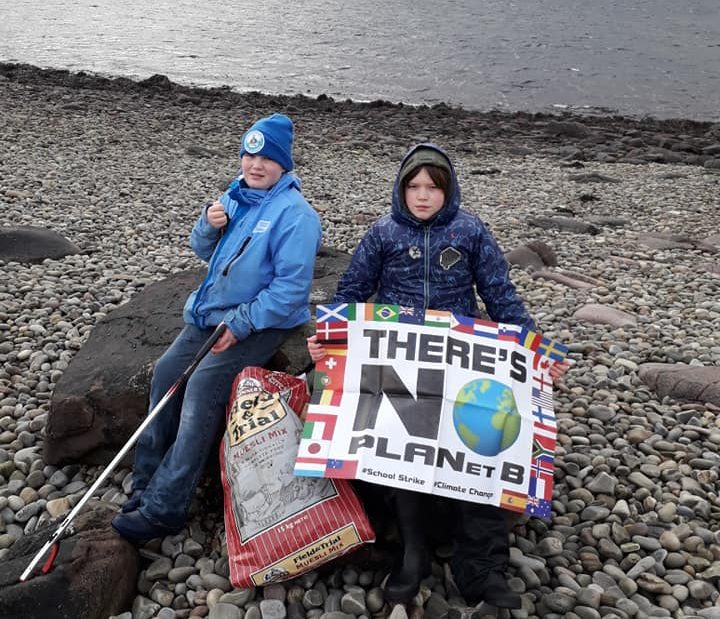
The thing to remember is that spreading the message is what is important not personalities or fame. We are doing this to raise awareness about the world’s problems so I always say to people what’s important is ‘ECO not EGO’
How do you make your voice be heard?
I make my voice heard by climate striking every Friday in Ullapool or where ever I happen to be on the day. I recently completed my 60th week of striking having started in December 2018. I generate publicity for this by putting posts on social media (Twitter, Facebook and Instagram). This has helped to bring me to the attention of the media (Newspapers, Radio and TV) where, when interviewed, I can amplify my voice to tell everyone about our oceans and sharks.
I have been invited to the Scottish and European parliaments to speak directly with politicians about the climate emergency. I go to conferences and talk directly to lots of people about sharks and the climate. Recently I helped create some school resources about sharks and climate change with Twinkl a very large educational information provider. This has been downloaded and used in schools as far away as Italy and New Zealand.
The thing to remember is that spreading the message is what is important not personalities or fame. We are doing this to raise awareness about the world’s problems so I always say to people what’s important is ‘ECO not EGO’
… the whole point of the strikes is to highlight that what is the point of being educated if politicians won’t listen to the scientists and what use is education if we don’t have a liveable planet
You were the first student to start climate strikes in the UK. How are you coping with school alongside with climate activism?
I think we all have to find the balance between school, climate activism and our own personal lives. I am very busy as I not only campaign for the climate but also campaign about plastic pollution, sharks and wildlife.
At the moment I don’t have to worry about exams unlike some of my older climate activist friends. But the whole point of the strikes is to highlight that what is the point of being educated if politicians won’t listen to the scientists and what use is education if we don’t have a liveable planet? Perhaps in a few years’ time I will have to slow down a bit but at the moment my campaign work is all consuming. My parents are very good at managing my time and ensuring that I also do all the normal kid stuff too.
‘What we need is definite action, not words’
What do you think the future holds for us? Do you think we will be able to tackle this crisis? What do you wish for 2020?
It all depends on what our politicians do now to tackle the climate crisis. What we need is definite action, not words. Hence my hashtag #ActionNotWords. At the moment we have the most backward actions being done like building spaceports, expanding airports, opening new coal mines and funding oil exploration rather than investing properly in renewable energy. If world leaders do not take action on the climate now this will soon be a very hostile world to live on.
We can all make personal changes to the way we live to help the planet but to solve the climate emergency we need to make major system changes in the way countries are run and conduct business and we need to do that now. Our leaders need to develop a sense of urgency and stop ‘kicking the can down the road’ for future generations to deal with. We have ten years to turn this ship around before it is too late.
2020 is the year of the oceans so I am hopeful this will make people realise how important this hidden, little explored part of the world is for the health of our planet. COP26 is due to be held in Scotland in November, hopefully we can use this as an opportunity to force our country to take serious action on the climate emergency.
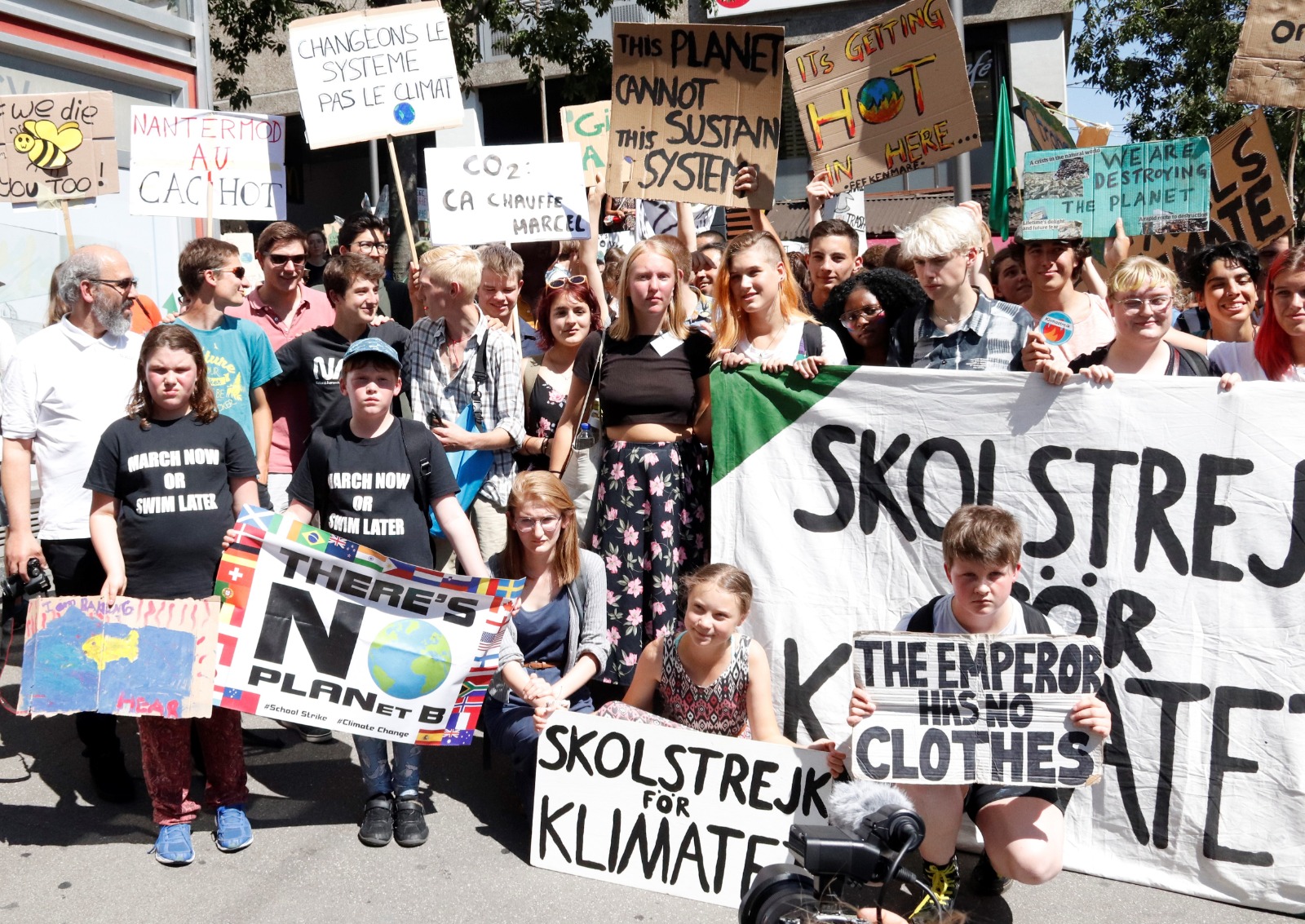
Remember to ‘walk the walk as well as talk the talk’ – set a good example to others in the way you live your own life, by what you eat, consume resources and the way you travel around.
‘Don’t be scared to start’
Do you have anything to say to people in Turkey who want to start climate actions. Any advice or tips you would like to share?
Don’t be scared to start. It is never too late to join the climate movement. As Greta says with action comes hope. Maybe start by going to your local climate strike and if you don’t have one do what I did and create your own. Stick with it, its hard work and requires a lot of tenacity. It can be lonely, reach out to other climate strikers and groups who can all offer support and help. Join in coordinated actions also help to make you feel less isolated. Remember to ‘walk the walk as well as talk the talk’ – set a good example to others in the way you live your own life, by what you eat, consume resources and the way you travel around.

